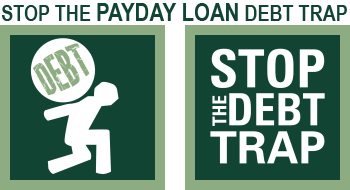Click here for the full blog post from California Reinvestment Coalition!
On Thursday, September 8th, the Chair of the LA County Board of Supervisors, Hilda L. Solis, hosted a press conference with LA community leaders where she talked about the financial harms caused by predatory payday, car title, and high-cost installment loans.
LA County Motion
At the press conference, Supervisor Solis announced an LA County motion in support of the Consumer Financial Protection Bureau (CFPB) implementing strong federal rules to better protect consumers from harmful lending practices by payday, car title, and high cost installment lenders. The motion was approved unanimously the following week, making Los Angeles County the largest county in California (and the US) to pass a motion supporting strong rules by the CFPB to better protect consumers from predatory lending.
Supervisor Solis explained: “This motion is an important way for the Los Angeles County Board of Supervisors to demonstrate that we believe protecting families and their pocketbooks is good public policy and that we strongly support the CFPB finalizing a rule that will prioritize borrowers over ill-gotten profits.”
Community Leaders
Rabbi Joel Thal Simonds, associate program director at the Religious Action Center of Reform Judaism, opened the event. He explained: “The words of Exodus 22:24 remind us that ‘If you lend money to My people, to the poor among you, do not act toward them as a creditor; exact no interest from them.’ We seek a just and caring society in which those in need are not set on downward spiral of debt and hopelessness. That is why we must stop the abusive practice of payday lending which profits off the hardships of those living paycheck to paycheck. ”
Borrowers Discuss Their Experiences
During the press conference, former payday loan consumers also spoke about their experience with the so-called “payday loan debt trap.” The “debt trap” refers to the fact that most payday loan borrowers are unable to repay their first loan when it comes due two weeks after they got it. So, they are forced to roll over or renew the loan, often multiple times, and they are paying an average APR in California of 366% when borrowing these loans.
Christina Griffin explained:
“When I had a financial emergency, I thought I could use a payday loan once and be done with it. Instead, I couldn’t pay back the loan two weeks later- and also be able to pay my other expenses. So, I had to keep rolling over my payday loan- which meant more and more fees and less money for other things- like groceries. As a former customer who survived the “debt trap,” I’m urging the CFPB to put a stop to this “debt trap” for future borrowers.”
Rosa Barragán shared her story of getting caught in a long term cycle of payday loan debt when she took out a loan following the passing of her husband. You can read more of her story in La Opinión’s article about the press conference: Exigen mano dura para las compañías de ‘payday loans’.

Rosa Barragan speaking
Pit of Despair Art Installation
In addition to the press conference, a visually stunning, life-sized 3D art installation, the “Pit of Despair” was unveiled. It was created by an artist named Melanie Stimmel and the team at We Talk Chalk, and it is a graphic illustration of how payday lending really works. The interactive art display has traveled around the country to visually demonstrate the “debt trap” that the majority of payday loan borrowers find themselves in when they are unable to make a balloon payment to repay their loan two weeks after they receive it. As a result, most borrowers renew their loans repeatedly (incurring more charges each time), which has been labeled the “payday loan debt trap.”
The Negative Impact of Payday Loan Stores in Los Angeles
Los Angeles County is home to approximately 800 payday loan storefronts, by far the most of any county in California. Because of the structure and terms of payday, car title, and high-cost installment loans, they worsen the financial position of most borrowers. Research has found that lenders are disproportionately located in communities of color, and are a net drag on the overall economy.
Bill Allen, CEO of the Los Angeles County Economic Development Corporation, explained the impact of payday loan fees recently in an LA Daily News OpEd:
“These “alternatives” drain low-income residents’ scant savings. More than $54 million in check-cashing fees and $88 million in payday loan fees each year are paid by county residents. If those consumers had better financial services options, much of that $142 million could go toward building household savings, thus increasing economic stability for their families and communities.”
Gabriella Landeros from the Los Angeles County Federation of Labor explained: “Working families deserve better than the harmful financial products peddled by these lenders, and we join the LA County Board of Supervisors in urging the CFPB to finalize and enforce a strong rule to protect consumers.”
Liana Molina, director of community engagement at the California Reinvestment Coalition, helped organize the event and coordinated with the StopTheDebtTrap team at Americans for Financial Reform to bring the “Pit of Despair” art installation. She explained:
“The payday loan industry advertises their loans as quick, one-time “fix” for a financial emergencies. In reality, these loans are designed to do the opposite. The majority of borrowers will end up renewing their loans repeatedly and incurring huge fees every time they do so. The CFPB can stop this “debt trap cycle” by implementing a strong rule that would require lenders to underwrite these loans, to determine that borrowers have the ability to repay without having to re-borrow or default on other expenses.”

